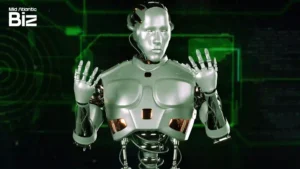
As the world continues to embrace the concept of smart homes, the demand for service providers who can integrate Internet of Things (IoT) devices and maintain these interconnected systems is growing exponentially. Smart homes—houses equipped with devices that automate tasks and communicate with each other over the internet—have become a staple in modern living. From voice-controlled lights to intelligent thermostats, IoT devices are making daily life more convenient, energy-efficient, and secure. However, this rapid growth in smart technology also presents challenges, creating a surge in demand for IoT expertise to ensure that these systems function seamlessly.
1. The Rise of Smart Homes: A Market on the Move
The smart home market is expanding rapidly. According to Statista, the global smart home market size is projected to grow from $91.5 billion in 2021 to $235.5 billion by 2027. This growth is driven by technological advancements, increased consumer interest in convenience, and the rising adoption of IoT devices across various home systems—lighting, security, energy management, and entertainment.
Smart homes integrate IoT devices to automate tasks such as adjusting the thermostat, monitoring security cameras, controlling lighting, and managing appliances. Devices like smart thermostats (e.g., Nest or Ecobee), voice assistants (e.g., Amazon Alexa or Google Assistant), and home security systems (e.g., Ring or ADT) work together to enhance the homeowner’s experience. These interconnected systems have quickly moved from the realm of early adopters to mainstream consumers.
2. Integration Challenges in Smart Homes
While the idea of a fully connected home is attractive, integrating various IoT devices into a cohesive and reliable system can be a complex task. One of the main challenges is ensuring compatibility among devices from different manufacturers. IoT devices come with different communication protocols, and when they are not designed to work together, it can lead to technical difficulties or even complete system failure.
Moreover, the integration of smart devices often requires expert installation and troubleshooting. While some devices can be easily set up by consumers, the process of connecting them into an ecosystem where all devices communicate effectively requires technical expertise in networking, configuration, and sometimes even coding. This growing complexity is where IoT experts and service professionals come into play.
3. The Role of IoT Expertise in Smart Home Integration
The demand for IoT expertise is becoming critical to ensure that smart homes are installed and maintained properly. Home service businesses that specialize in smart home integration are increasingly essential as consumers look for experts who can not only install devices but also ensure that they operate together seamlessly.
Technicians with IoT expertise can help homeowners set up smart devices, integrate them with existing home systems, and troubleshoot issues when they arise. This expertise is especially important for complex installations, such as home automation systems that control multiple devices (lighting, HVAC, locks, etc.) from a central platform.
Beyond installation, IoT experts are also needed for ongoing support and maintenance. As IoT devices are software-driven, they require periodic updates, and over time, some devices may become obsolete or incompatible with newer technologies. Skilled professionals are needed to guide homeowners in upgrading devices, ensuring that the system remains functional and secure.
4. Security and Privacy Concerns
With the proliferation of IoT devices in homes, the security and privacy of smart homes have become a significant concern. Many IoT devices collect vast amounts of data, including user behavior, preferences, and even personal conversations. If these devices are not properly secured, they can become vulnerable to cyberattacks, putting users’ personal information at risk.
For this reason, service providers with IoT expertise need to address security issues during the integration process. Installing firewalls, securing Wi-Fi networks, and encrypting data streams are critical steps in protecting smart home systems. Furthermore, professionals must educate homeowners about securing their devices and the risks associated with third-party apps or services that could compromise security.
Many smart home service companies are investing in cybersecurity training for their staff to ensure that every aspect of smart home installation and maintenance is secure. This includes implementing best practices for password management, device monitoring, and software updates. Ensuring robust security will be a major factor in building consumer trust in smart home technologies.
5. Home Energy Management and Efficiency
Energy management is one of the most significant benefits of smart home technology, and it plays a crucial role in the growing demand for IoT expertise. Smart thermostats, lights, and energy meters help homeowners save on utility bills by optimizing energy consumption. These devices allow for more precise control over heating, cooling, lighting, and appliances, based on real-time usage data.
For instance, smart thermostats can learn homeowners’ preferences over time, adjusting temperatures automatically to maximize comfort while reducing energy consumption. Similarly, smart lighting systems can turn off lights when a room is unoccupied or adjust the brightness based on natural light levels.
However, ensuring that these energy-efficient systems work seamlessly together requires significant expertise in both the IoT devices themselves and the broader home energy systems. Technicians who specialize in energy management systems and IoT integration can help homeowners optimize their smart home’s energy usage, providing cost savings and contributing to environmental sustainability.
6. The Increasing Need for Skilled Technicians
As the smart home market grows, the demand for skilled technicians who can design, install, and maintain IoT-based systems is expected to increase. According to Forbes, there is a projected shortage of skilled workers in the tech industry, including IoT specialists, as the demand for digital services rises. To address this, businesses offering smart home services will need to invest in training and upskilling their workforce.
IoT experts are required not just for installation, but also for troubleshooting, device repair, and upgrading systems. They must be knowledgeable about the latest technology trends, including new communication protocols, software updates, and security standards. They also need to stay updated on emerging technologies, such as 5G connectivity, that could further influence the integration of smart home devices.
For service providers, offering continuous training and development for their technicians is key to staying competitive. Service businesses can partner with tech companies or industry associations to access training resources and certifications that ensure their teams have the required skills to handle new IoT technologies.
7. The Future of IoT in Smart Homes: A Unified Ecosystem
Looking ahead, the future of smart homes will likely involve the creation of more unified ecosystems. As demand for interoperability between devices continues to grow, platforms such as Amazon Alexa, Google Home, and Apple HomeKit are paving the way for greater integration across devices from various manufacturers.
However, for this vision to be fully realized, the integration of smart devices must be seamless, reliable, and intuitive. This means IoT experts will continue to play a vital role in enabling these ecosystems, ensuring that homes are not only smart but also responsive to the needs and preferences of homeowners.
Additionally, the rise of 5G technology will further enhance smart home integration by enabling faster communication between devices. The speed and low latency of 5G will allow for more sophisticated smart home applications, such as real-time data monitoring and control, and will likely create even more demand for IoT expertise in the future.
8. Conclusion: IoT Expertise as a Cornerstone of Smart Home Success
The growing demand for smart homes is inextricably linked to the need for IoT expertise. As consumers increasingly adopt smart devices for their homes, the role of service providers in integrating, maintaining, and securing these systems is more critical than ever. Businesses that can provide skilled technicians with the right IoT knowledge will not only meet the current demand but also position themselves as leaders in an industry poised for rapid growth.
As the technology behind smart homes continues to evolve, the future will require a more interconnected, secure, and energy-efficient approach. IoT experts will remain at the forefront of this transformation, ensuring that smart home systems operate seamlessly and that homeowners enjoy the full potential of their connected homes.
References:
- Statista, “Global Smart Home Market Size and Forecast,” 2024. Link
- Forbes, “Why IoT is Changing the Home Services Industry,” Forbes Insights, 2024. Link
- IoT World Today, “The Growing Demand for IoT Expertise in Smart Homes,” IoT World Today, 2024. Link
- McKinsey & Company, “The Future of Home Automation and IoT,” McKinsey Insights, 2023. Link












